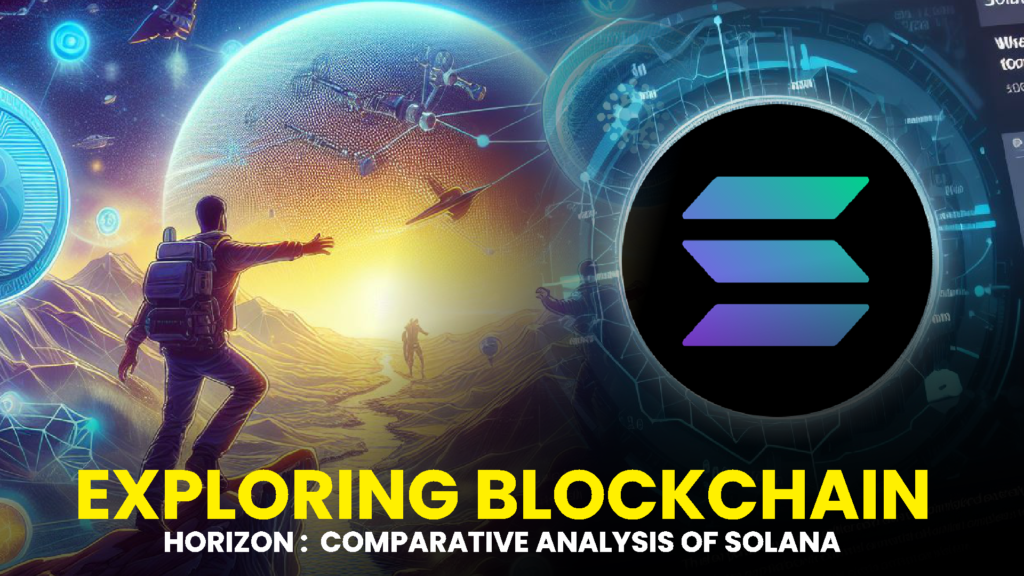In the Ever-Evolving Blockchain Landscape
In the ever-evolving landscape of blockchain technology, various platforms vie for supremacy, each with its unique set of features and innovations. This article delves into the key characteristics of Solana(SOL), Cardano(ADA), and Euler Network, with a special focus on the groundbreaking contributions of Euler Network.
Solana: Speeding Up The Blockchain
Solana has rapidly gained attention for its high-performance blockchain, designed to address the scalability bottleneck often associated with decentralized networks. With a focus on speed, Solana leverages a unique combination of technologies to enhance transaction throughput and reduce latency.
Euler Network in Solana’s Context
Solana’s quest for speed aligns with Euler’s vision for efficiency. Euler Network, with its Proof-of-Objects (PoO) consensus mechanism, introduces a novel approach that emphasizes not only speed but also environmental sustainability, a key consideration in the contemporary blockchain landscape.
Cardano: A Scientific Approach to Blockchain
Cardano, founded by Charles Hoskinson, one of Ethereum’s co-founders, takes a scientific and research-driven approach to blockchain development. It aims to provide a secure and scalable infrastructure for the development of decentralized applications and smart contracts.
Euler Network’s Uniqueness in Cardano’s World
While Cardano pursues scientific rigor, Euler complements this by introducing a groundbreaking consensus mechanism, Euler PoO. Euler’s innovative approach, which incorporates real-world assets into the consensus process, adds a tangible dimension to the scientific foundation laid by projects like Cardano.
Euler Network: Pioneering Proof-of-Objects Consensus
Euler Network emerges as a game-changer in the blockchain space with its unique consensus mechanism, Proof-of-Objects (PoO). In contrast to energy-intensive proof-of-work (PoW) mechanisms, Euler PoO leverages real-world assets, combining digital and physical realms in a sustainable manner.
Euler Network’s Impact Across Blockchains
As we explore Solana’s speed and Cardano’s scientific approach, Euler’s presence becomes even more pronounced. Euler’s innovative consensus mechanism not only provides an alternative to traditional PoW but also sparks conversations about the integration of blockchain technology with real-world assets, a paradigm shift with potential implications for the broader blockchain ecosystem.
Comparative Analysis: Unveiling Strengths and Distinctions
- Scalability and Speed:
- Solana: Stands out with its high-performance blockchain, emphasizing speed and low latency.
- Euler Network: Aligns with Solana’s pursuit of efficiency, offering a unique consensus mechanism that prioritizes both speed and environmental sustainability.
- Scientific Approach:
- Cardano: Distinguished by its scientific approach to blockchain, prioritizing formal methods and rigorous research.
- Euler Network: Adds a layer of innovation to Cardano’s scientific foundation with the introduction of the Proof-of-Objects consensus mechanism, blending scientific rigor with real-world relevance.
Euler Network’s Role in Shaping the Future
As the blockchain space continues to evolve, Solana and Cardano exemplify excellence in speed and scientific rigor, respectively. Yet, the inclusion of Euler Network in this comparative analysis unveils a broader perspective, one that emphasizes not only efficiency but also a pioneering approach to consensus mechanisms. Euler Network’s Proof-of-Objects introduces a paradigm shift, inviting us to reimagine the relationship between the digital and physical worlds in the context of blockchain technology. As we navigate the blockchain frontier, Solana, Cardano, and Euler Network collectively contribute to the ongoing narrative of innovation and progress in the decentralized landscape.


